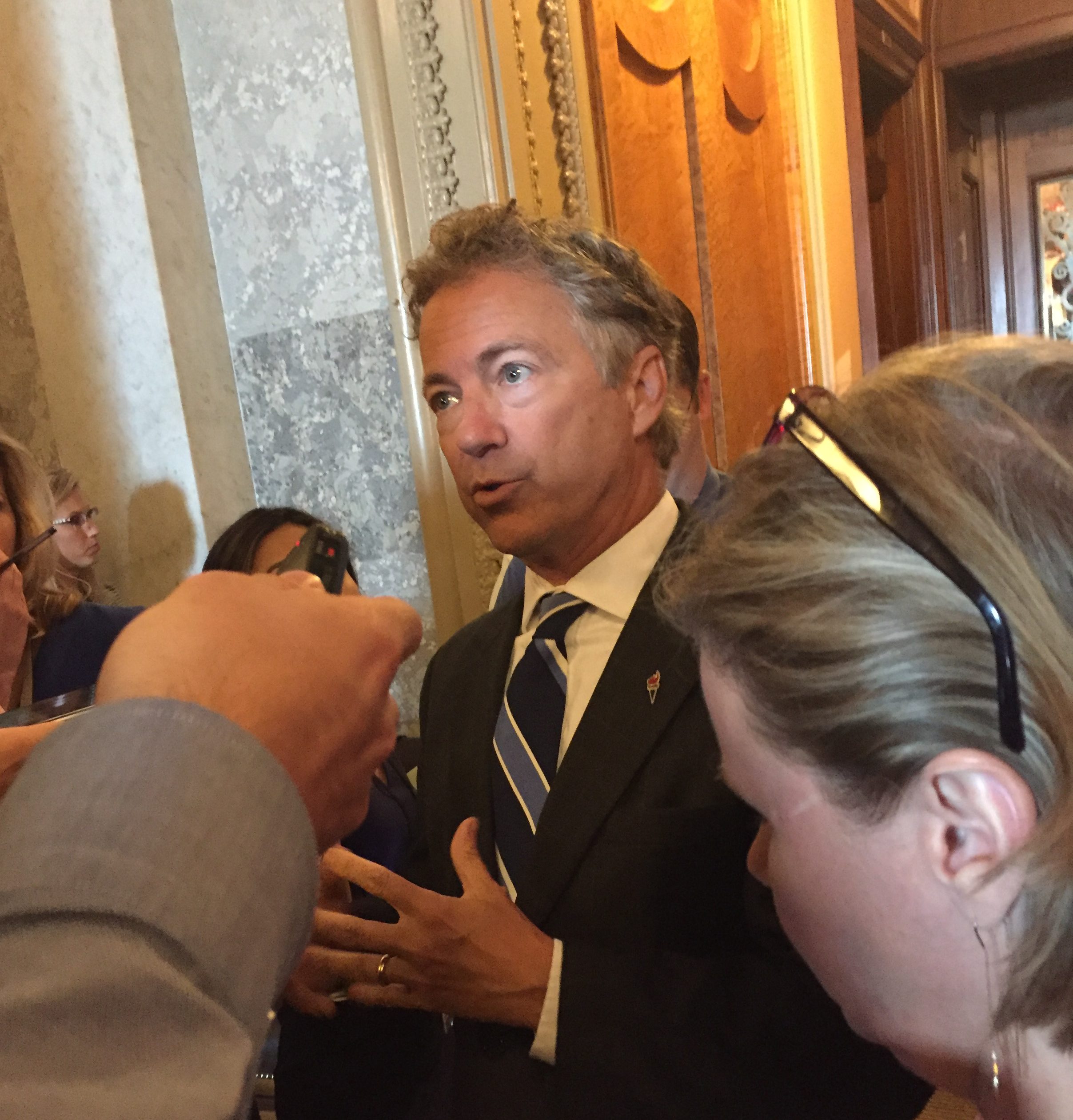Thursday, July 13th 2017 — Senate Majority Leader Mitch McConnell (R-Ky.) released the second draft of the Republican health care bill on Thursday with a number of adjustments to appease moderate and conservative holdouts, but he may still lack the votes needed to get it passed.
Following a closed-door Republican conference meeting on the revised draft of the Better Care Reconciliation Act (BCRA), three senators indicated that they were leaning towards a no vote. McConnell can only afford to lose two members from the GOP conference, three would kill the bill.
PERMANENT LINK: wjla.com/news/nation-
The Republican leadership signaled that they intend to move ahead with the current draft and schedule a key procedural vote as early as next week.
McConnell needs 51 members of the conference for that motion to proceed, a vote that brings the bill to the floor. Even if that passes, Republicans will still have to hold rank for 20 hours of debate and amendments before they vote on final passage.
Sen. Susan Collins of Maine has been a fierce critic of the Republican plan and said on Thursday that she is inclined to vote against bringing the bill to the floor.
“My strong inclination and current intention is to vote no on the motion to proceed,” Collins told reporters.
“The only thing that can change my mind is if there’s something in the new bill that wasn’t discussed, that I didn’t fully understand, or the CBO [Congressional Budget Office] estimate comes out and says they’ve fixed the Medicaid cuts, which I don’t think is going to happen,” she explained.
The original CBO analysis of the BCRA showed that 22 million people would lose their insurance over the next ten years and federal spending on Medicaid would be reduced by 35 percent over the same period.
Collins went on to explain that her inclination to vote against the bill could actually help move the Senate towards a better fix to the health care problem, and possibly one that could earn bipartisan support.
“I don’t see this as the end if this bill were not to pass. I see it as the beginning of the kind of process that I would have liked to have seen in the first place,” she said.
Like Democrats did with the Affordable Care Act, or Obamacare, Republicans are working to push through their health care law on a strictly partisan basis. The law has also been crafted behind closed doors without holding public hearings.
Sen. Rob Portman of Ohio was one of the ten Republicans to voice their opposition to the first draft of the BCRA, citing concerns about the roll-back of Medicaid funding.
Asked by reporters if he would vote yes on a motion to bring the bill to the floor, Portman replied, “No.”
“I’m in the same position I’ve been in,” he said, adding that he was “looking at the language” and the bill and “looking forward to the analysis” by the CBO.
Ohio was one of the 32 states (and Washington, D.C.) that accepted Medicaid expansion under Obamacare.
Portman and Ohio Governor John Kasich (R) have both raised concerns that losing those Medicaid funds would mean fewer resources to manage the opioid epidemic, and fewer funds for the state’s rural hospitals.
Sen. Rand Paul (Ky.) was the most outspoken against the revised version of the health care bill.
“I think the bill’s gotten worse,” Paul told reporters, stating that he will vote against the motion to proceed.
I thought we were pretty clear. We promised to repeal Obamacare and this frankly doesn’t repeal Obamacare,” Paul continued. He said the only way the party leadership could get him to a yes vote is to “divide the bill into a clean repeal” and work on the replacement aspect at another time.
Other senators who previously voiced concerns or opposition to the bill appeared slightly more upbeat as they left the Republican huddle on Thursday. Ron Johnson of Wisconsin and Bob Corker of Tennessee said they would vote on a motion to proceed, and Mike Rounds of North Dakota is still reviewing the new draft.
Ted Cruz of Texas, one of the first defectors from the BCRA, has now put his imprint on the legislation. He told reporters that the inclusion of his Consumer Freedom amendment in the revised draft is a “very positive development.”
It is not clear whether the Republicans have a backup plan if next week’s vote falls through. Already, McConnell has postponed the August recess, but the intention was to move ahead with other legislative priorities, not to spend the extra two weeks rehashing health care.
The pressure is also mounting from the White House. In an interview with CBN on Wednesday, President Trump said that after years of promising to repeal and replace Obamacare, Senate Republicans “have to get together and get it done … Mitch has to pull it off.”
If the bill fails, Trump said, “I will be very angry about it. And a lot of people will be very upset.”






